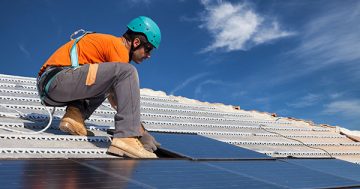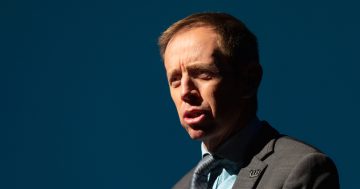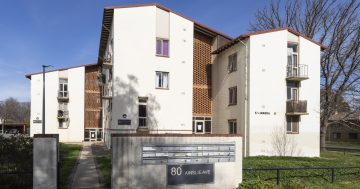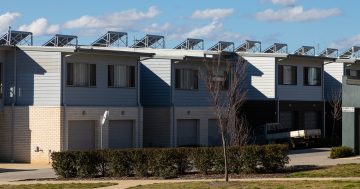
Gas appliances in new homes won’t be possible with new connections to the network banned in Canberra from 8 December. Photo: Bill Oxford.
The clear line in the sand for gas is looming. No new connections to the network will be allowed from next week.
The regulation preventing new gas network connections to buildings in Canberra will begin on 8 December as part of the ACT Government’s plan to transition from fossil fuels.
The building and construction industry has known for a while Canberra plans on being natural gas free by 2045.
Water, Energy and Emissions Reduction Minister Shane Rattenbury said this regulation was about formalising the process.
“In having no new connections, we’re making sure new builds aren’t putting in gas systems that will need to be retrofitted out later at significant expense,” he said.
“The regulation will apply to all residential buildings, commercial land-use zones and community facility zones. This is because residential buildings and other buildings in these areas can be electrified right now as the technology and skills to support electrification already exists.”
The regulation does not prohibit new gas connections in industrial zones and there is the capability of exemptions in other zones for “outlier” cases.
Existing gas connections will not be impacted by this regulation.
The regulation has been welcomed as giving a clear direction on what’s expected of the building and construction industry around gas.
Master Builders Association ACT CEO Michael Hopkins said many developers and builders were already constructing projects with no new gas connections, but pointed out those currently under consideration had some wriggle room.
“Importantly in the new regulation there is a provision that deals with approvals that have already been given or applications currently in the system,” he said.
“So if you are already designing a project that’s relying on a gas connection, you’ll be able to continue for a short transition period. If you want to make a decision to switch, building contracts already contain a mechanism that will allow for a variation to be made, and we would encourage anyone to speak with their builder, speak with their tradies about making that change.”
Homebuilders usually incurred a contract variation fee if making changes to their design, so Mr Hopkins advised people to have conversations about changing from gas to electric connections and appliances now.
“Have that discussion early with [your] builder to make sure both the builder and the client understands the contract impacts and the cost impacts before they embark on their renovation or building projects,” he said.
Transitional arrangements will be in place for development applications lodged and building approvals issued by 1 March, 2024.
About a third of all homes in the Territory don’t have a connection to gas, and the demand for new connections has been declining.
Mr Rattenbury said there would be a “massive transition stage” for the existing electricity distribution network, but impacts on that system were expected to be softened as people continued to turn to more sustainable options.
“Batteries are coming into the system, people have got solar, electric vehicles are starting to plug into the system – we’re going to see much more of a two-way system,” he said.
“Historically it’s been more of a one-way system where power flows out, but we’re seeing a system that will flow very much in two directions, and that will also offer the grid resilience.”
Discussions are still underway about the best method to disconnect people currently on the gas network, and how to shut down the network once everyone has disconnected.
Mr Rattenbury said research had shown running the ACT’s gas network would be uneconomical by 2045, so the government needed to work out a way to decommission it fairly.
“We’re conscious of making sure that consumers don’t get stranded on the network with higher costs,” he said.
“That’s particularly a consideration for lower income households who are potentially the slower ones to move off the gas network, so there are some very important equity considerations in that transition.”
With 2045 the absolute end date for gas connections in the ACT, Mr Rattenbury wouldn’t rule out bringing that date forward given the rapid pace people were disconnecting gas.
“The pathway to electrification is a long road. It’s not something that will happen overnight, and there is time to plan for it, but it will happen,” he said.
“The regulation we’ve introduced will help us take another step along that path and make sure our city is set up for our future energy needs now.”
More information about the regulation and incentives to help Canberrans electrify is available via Everyday Climate Choices.





















